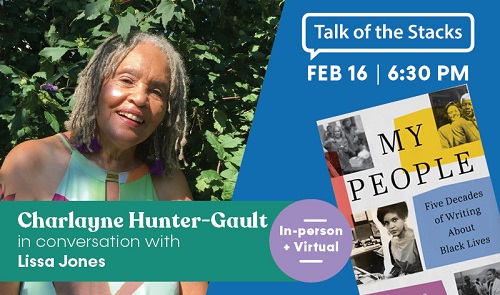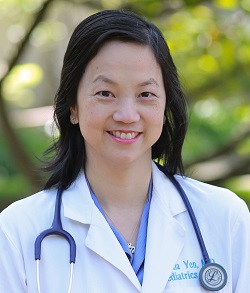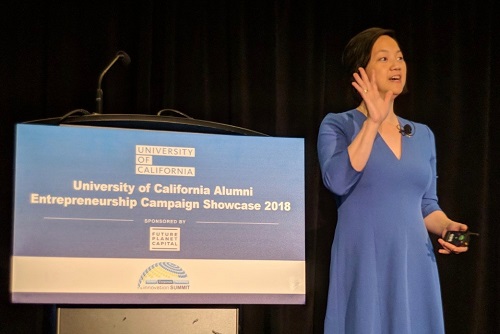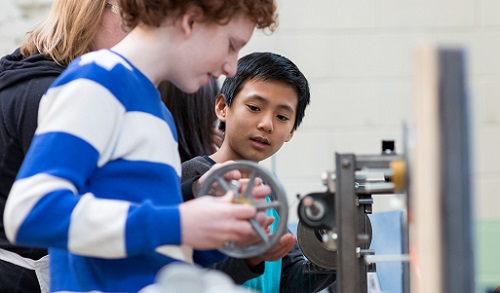By Aileen Johnson
Good Morning and Happy Monday North Loop Neighborhood Safety Friends!
I hope that everyone enjoyed the warmer weather on Saturday and Sunday but - wow- Friday night was a different weather story altogether!
Friday night was indeed frigid when a small group of us bundled up to attend the MPD Academy Graduation Ceremony. For those who were unable to venture out, let me put you into the picture. The ceremony was held at the Convention Center where upon arrival we were greeted by MPD Community Service Officers (CSOs) who made us all feel welcome as they handed out the evening's program. The room was large and quickly it filled up with officers, friends, and family all excited for the ceremony to begin. Council Member Michael Rainville was there and made a special point of talking with the families of the graduates as everyone was settling in. All grew quiet as the Academy Class and their Instructors were piped into the room in a procession led by Bill Gilchrist of the MN Police Pipe Band. Lt. Molly Fisher gave the welcoming remarks and the MPD Color Guard were there to present the colors before Chaplain Joan Austin gave the Invocation. Next, we heard remarks from Mayor Jacob Frey, Chief Brian O'Hara, and Academy Class Representative Luke Weatherspoon. Chief O'Hara then administered the Oath of Office and presented each new Officer their badge. Following this, the new Officers had their badges pinned on them by proud family members. After Police Chaplain Reverend Charles Graham gave the Benediction, there was plenty of time for visiting and there were cookies to be enjoyed. It was a warm experience and we have been cordially invited to attend the next graduation.
On Saturday, we distributed 30 of the new North Loop maps to residents and visitors alike. We did an informal survey of people on the street and in the shops about a new idea we have that may help with awareness on the prevention of auto theft and theft from auto. More to come on this idea soon but the important thing to understand today is that in just the first month of 2023, Minneapolis has experienced 700 auto thefts and 260 cases of theft from autos. In many cases, the cars were stolen with keys or fobs left in the car by their owners or when they were left running while their owners did a quick errand. I am attaching a new flyer from our First Precinct Crime Prevention Specialist Renee Allen that outlines this growing issue. Please share this flyer with your friends and families and, if possible, post this in your building. There is no doubt that every bit of help that each one of us gives will make a difference!
Beginning this Sunday, February 12th we will be changing the time of the Sunday walk to 2:00 pm. This will allow us to interact with more neighbors and visitors.
This week we have two tours of MECC/911/Dispatch to look forward to! If you have not yet had the opportunity to spend some time learning about how 911/Dispatch works and to see the operation in action, this is a "can't miss" event. Here are the details:
Date and Time: Wednesday, February 8 Evening Tour from 6:30 - 8:00 pm
Event: Evening Tour of MECC/911/Dispatch
Location: The MECC is located in Minneapolis City Hall at 350 S 5th St. We will enter the City Hall Building at the 4th St “After Hours” Entrance and gather at the Father of Waters Statue 15 minutes before the tour at 6:15 pm. The Father of Waters Statue weighs 14,000 pounds so you will be able to spot it easily.
Date and Time: Thursday, February 9 Morning Tour from 9:00 - 10:30 am
Event: Morning Tour of MECC/911/Dispatch
Location: The MECC is located in Minneapolis City Hall at 350 S 5th St. We will enter the City Hall Building at the 4th St Entrance and gather at the Father of Waters Statue 15 minutes before the tour at 8:45 am. The Father of Waters Statue weighs 14,000 pounds so you will be able to spot it easily.
If you would like to walk to City Hall for the tour together on Wednesday evening, please let me know. We will meet at 5:45 pm in front of the Hewing Hotel. We will walk everyone home afterwards. There is no need to walk alone. If you prefer to drive, there is metered street parking available in the blocks surrounding City Hall. I always have the best luck finding a metered street spot on 3rd St S between 3rd and 5th Aves S.
Here is our walk schedule for the week ahead:
Date: Friday, February 10th from 8:00 - 9:00 pm
Event: North Loop Neighborhood Safety Walk
Location: The Nordic at 729 N Washington Ave
Date and Time: Saturday, February 11th from 2:00 - 3:00 pm
Event: North Loop Neighborhood Safety Walk
Location: 4th Ave Playground on the James Rice Parkway
Date and Time: Sunday, February 12th from 2:00 - 3:00 pm
Event: North Loop Neighborhood Safety Walk
Location: On the sidewalk at 575 N 1st St
I look forward to seeing you and catching up!
Thanks and best wishes from Aileen
Aileen Johnson
(612) 516-9705
******************
UPCOMING WALKS AND EVENTS
Date and Time: Wednesday, February 8 Evening Tour from 6:30 - 8:00 pm
Event: Evening Tour of MECC/911/Dispatch
Location: The MECC is located in Minneapolis City Hall at 350 S 5th St. We will enter the City Hall Building at the 4th St “After Hours” Entrance and gather at the Father of Waters Statue 15 minutes before the tour at 6:15 pm. The Father of Waters Statue weighs 14,000 pounds so you will be able to spot it easily.
Date and Time: Thursday, February 9 Morning Tour from 9:00 - 10:30 am
Event: Morning Tour of MECC/911/Dispatch
Location: The MECC is located in Minneapolis City Hall at 350 S 5th St. We will enter the City Hall Building at the 4th St Entrance and gather at the Father of Waters Statue 15 minutes before the tour at 8:45 am. The Father of Waters Statue weighs 14,000 pounds so you will be able to spot it easily.
Date and Time: Thursday, February 9th from 3:30 - 5:30 pm
Event: Classic Movies in Loring Park
Details: This is an exciting new weekly series of classic movies hosted by our friends in the Park House.
Location: The Park House in Loring Park at 1382 Willow St
Date and Time: Thursday, February 9th from 5:30 - 7:00 pm
Event: Loring Park Neighborhood Safety Walk
Location: The Woman’s Club at 410 Oak Grove St
Date and Time: Thursday, February 9th from 5:30 - 7:00 pm
Event: Mill District Neighborhood Safety Walk
Location: The steps at the back of the Guthrie
Date: Friday, February 10th from 8:00 - 9:00 pm
Event: North Loop Neighborhood Safety Walk
Location: The Nordic at 729 N Washington Ave
Date and Time: Saturday, February 11th from 2:00 - 3:00 pm
Event: North Loop Neighborhood Safety Walk
Location: 4th Ave Playground on the James Rice Parkway
Date and Time: Sunday, February 12th from 2:00 - 3:00 pm
Event: North Loop Neighborhood Safety Walk
Location: On the sidewalk at 575 N 1st St
Date and Time: Sunday, February 12th from 10:00 am - 12:00 pm
Event: East Isles Neighborhood Safety Walk
Location: Meet at the Joanne Levin Triangle Park at 1600 W 26th St
Date and Time: Thursday, February 16th from 3:30 - 5:30 pm
Event: Classic Movies in Loring Park
Details: This is an exciting new weekly series of classic movies hosted by our friends in the Park House.
Location: The Park House in Loring Park at 1382 Willow St
Date and Time: Thursday, February 16th from 5:30 - 7:00 pm
Event: Loring Park Neighborhood Safety Walk
Location: The Woman’s Club at 410 Oak Grove St
Date and Time: Thursday, February 16th from 5:30 - 7:00 pm
Event: Mill District Neighborhood Safety Walk
Location: The steps at the back of the Guthrie
Date: Friday, February 17th from 8:00 - 9:00 pm
Event: North Loop Neighborhood Safety Walk
Location: The Nordic at 729 N Washington Ave
Date and Time: Saturday, February 18th from 2:00 - 3:00 pm
Event: North Loop Neighborhood Safety Walk
Location: 4th Ave Playground on the James Rice Parkway
Date and Time: Sunday, February 19th from 2:00 - 3:00 pm
Event: North Loop Neighborhood Safety Walk
Location: On the sidewalk at 575 N 1st St
Date and Time: Thursday, February 23rd from 3:30 - 5:30 pm
Event: Classic Movies in Loring Park
Details: This is an exciting new weekly series of classic movies hosted by our friends in the Park House.
Location: The Park House in Loring Park at 1382 Willow St
Date and Time: Thursday, February 23rd from 5:30 - 7:00 pm
Event: Loring Park Neighborhood Safety Walk
Location: The Woman’s Club at 410 Oak Grove St
Date and Time: Thursday, February 23rd from 10:00 am - 12:00 pm
Event: East Isles Neighborhood Safety Walk
Location: Meet at the Joanne Levin Triangle Park at 1600 W 26th St
Date and Time: Thursday, February 23rd from 5:30 - 7:00 pm
Event: Mill District Neighborhood Safety Walk
Location: The steps at the back of the Guthrie
Date: Friday, February 24th from 8:00 - 9:00 pm
Event: North Loop Neighborhood Safety Walk
Location: The Nordic at 729 N Washington Ave
Date and Time: Saturday, February 25th from 2:00 - 3:00 pm
Event: North Loop Neighborhood Safety Walk
Location: 4th Ave Playground on the James Rice Parkway
Date and Time: Sunday, February 26th from 2:00 - 3:00 pm
Event: North Loop Neighborhood Safety Walk
Location: On the sidewalk at 575 N 1st St
Date and Time: Tuesday, February 28th from 2:00 - 3:30 pm
Event: Narcan Training
Location: Woman's Club at 410 Oak Grove St
Date and Time: Thursday, March 2nd from 3:30 - 5:30 pm
Event: Classic Movies in Loring Park
Details: This is an exciting new weekly series of classic movies hosted by our friends in the Park House.
Location: The Park House in Loring Park at 1382 Willow St
Date and Time: Thursday, March 2nd from 5:30 - 7:00 pm
Event: Loring Park Neighborhood Safety Walk
Location: The Woman’s Club at 410 Oak Grove St
Date and Time: Thursday, March 2nd from 5:30 - 7:00 pm
Event: Mill District Neighborhood Safety Walk
Location: The steps at the back of the Guthrie
Date: Friday, March 3rd from 8:00 - 9:00 pm
Event: North Loop Neighborhood Safety Walk
Location: The Nordic at 729 N Washington Ave
Date and Time: Saturday, March 4th from 2:00 - 3:00 pm
Event: North Loop Neighborhood Safety Walk
Location: 4th Ave Playground on the James Rice Parkway
Date and Time: Sunday, March 5th from 2:00 - 3:00 pm
Event: North Loop Neighborhood Safety Walk
Location: On the sidewalk at 575 N 1st St
Date and Time: Thursday, March 9th from 3:30 - 5:30 pm
Event: Classic Movies in Loring Park
Details: This is an exciting new weekly series of classic movies hosted by our friends in the Park House.
Location: The Park House in Loring Park at 1382 Willow St
Date and Time: Thursday, March 9th from 5:30 - 7:00 pm
Event: Loring Park Neighborhood Safety Walk
Location: The Woman’s Club at 410 Oak Grove St
Date and Time: Thursday, March 9th from 5:30 - 7:00 pm
Event: Mill District Neighborhood Safety Walk
Location: The steps at the back of the Guthrie
Date: Friday, March 9th from 8:00 - 9:00 pm
Event: North Loop Neighborhood Safety Walk
Location: The Nordic at 729 N Washington Ave
Date and Time: Saturday, March 10th from 2:00 - 3:00 pm
Event: North Loop Neighborhood Safety Walk
Location: 4th Ave Playground on the James Rice Parkway
Date and Time: Sunday, March 11th from 2:00 - 3:00 pm
Event: North Loop Neighborhood Safety Walk
Location: On the sidewalk at 575 N 1st St
Date and Time: Thursday, March 16th from 3:30 - 5:30 pm
Event: Classic Movies in Loring Park
Details: This is an exciting new weekly series of classic movies hosted by our friends in the Park House.
Location: The Park House in Loring Park at 1382 Willow St
Date and Time: Thursday, March 16th from 5:30 - 7:00 pm
Event: Narcan Training
Location: Woman's Club at 410 Oak Grove St
Date and Time: Thursday, March 16th from 5:30 - 7:00 pm
Event: Mill District Neighborhood Safety Walk
Location: The steps at the back of the Guthrie
Date: Friday, March 17th from 8:00 - 9:00 pm
Event: North Loop Neighborhood Safety Walk
Location: The Nordic at 729 N Washington Ave
Date and Time: Saturday, March 18th from 2:00 - 3:00 pm
Event: North Loop Neighborhood Safety Walk
Location: 4th Ave Playground on the James Rice Parkway
Date and Time: Sunday, March 19th from 2:00 - 3:00 pm
Event: North Loop Neighborhood Safety Walk
Location: On the sidewalk at 575 N 1st St
 Tuesday, February 14, 2023 at 1:43AM |
Tuesday, February 14, 2023 at 1:43AM |  Becky Fillinger |
Becky Fillinger |  Arlene Burke-Morgan and Clarence Morgan in residence at the Penland School of Craft, Penland, NC. Courtesy of the Morgan Family.
Arlene Burke-Morgan and Clarence Morgan in residence at the Penland School of Craft, Penland, NC. Courtesy of the Morgan Family. Arlene Burke-Morgan, untitled, undated, ceramic sculpture, 14 x 13 x 9 in. Courtesy of the Morgan Family.
Arlene Burke-Morgan, untitled, undated, ceramic sculpture, 14 x 13 x 9 in. Courtesy of the Morgan Family. Clarence Morgan, Medieval Remnants, 2011 Mixed-media collage-drawing on 3M Scotchcal film, 10.5 x 10.5 in. Courtesy of the Morgan Family
Clarence Morgan, Medieval Remnants, 2011 Mixed-media collage-drawing on 3M Scotchcal film, 10.5 x 10.5 in. Courtesy of the Morgan Family Exhibition catalogue cover. Courtesy of the Katherine E. Nash Gallery.
Exhibition catalogue cover. Courtesy of the Katherine E. Nash Gallery. Howard Oransky, Director, Katherine E. Nash Gallery, University of Minnesota
Howard Oransky, Director, Katherine E. Nash Gallery, University of Minnesota























 Dan Chouinard
Dan Chouinard














